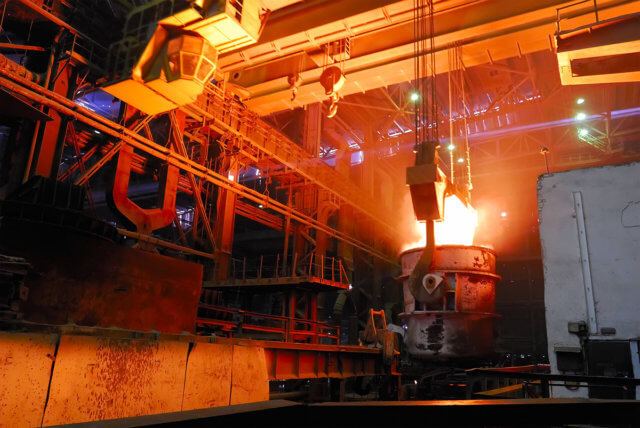ISLAMABAD: The country’s steel industry is up in arms once again over claims that steel manufacturers in the erstwhile FATA and PATA regions have been evading taxes giving them an unfair advantage over other steel producers in the country.
The complaints of the country’s steel industry against manufacturers in the former tribal regions is not new. Both FATA and PATA have a presence of steel manufacturers which have gone untaxed because of the special status of the region. However, ever since the regions were integrated with KP the taxation benefits have not gone.
With the passage of the recent budget, existing tax paying sectors have complained that they are being burdened further rather than the tax net being widened. In a letter addressed to the concerned ministries, the Pakistan Association of Large Steel Producers (PALSP), a leading representative body of large steel producers, expressed discontent over the preferential treatment afforded to tax-evading factories operating in FATA/PATA regions.
“These factories take advantage of lenient tax policies in these areas, while honest taxpayers and fully regulated industries bear the weight of a heavily burdened tax system. This stark disparity is not only viewed as unjust but also as a criminal offense against those who diligently fulfill their tax obligations,” they said.
The letter revealed alarming insights from the long steel industry, highlighting the severity of the issue. The steel industry in the Non-Mainstream Districts (NMDs), backed by authorized load from PESCO/TESCO, has the capacity to produce 944,851 tons of steel, constituting approximately 25% of Pakistan’s total steel consumption. However, the actual steel consumption within the NMDs accounts for a mere 2% of the country’s total steel consumption, indicating that around 92% of the steel produced in NMDs is being smuggled to settled areas without the payment of sales tax.
What is the claimed tax evasion?
In 2018, FATA and PATA were merged as districts of Khyber Pakhtunkhwa. Up until this point, FATA was administered from the President’s office in Islamabad and PATA by the Governor’s office in KP. To ease the integration of these areas into the general constitutionally framework of the country instead of special status, many industries were offered tax exemptions in these regions to bring them up to speed.
According to the Finance Act 2018, sales tax exemptions were provided exclusively for goods manufactured and consumed within the NMDs for a five-year period. This exemption aimed to support the people of NMDs during their transition into the formal economy until June 30, 2023.
PALSP’s study claims that there was widespread abuse of these exemptions by opportunistic individuals who are not residents of the NMDs. These individuals have formed partnerships or employed NMD representatives in several industries, including the long steel industry, flat steel industry, ghee industry, and pipe manufacturing, among others.
The scale of the problem
According to PALSP’s estimates, this rampant tax evasion has resulted in an annual loss of Rs 30.61 billion to the national exchequer, amounting to a staggering total of approximately Rs 150 billion over a span of five years in the long steel industry alone. Such widespread tax evasion places a significant burden on the national exchequer and forces honest taxpayers and fully regulated industries to bear the brunt of compensating for these losses.
Furthermore, the recent increase in income tax levels for the salaried class, driven by stringent International Monetary Fund (IMF) restrictions, has further burdened already overburdened taxpayers, exacerbating the unfairness caused by tax evasion in FATA/PATA industries. This skewed situation not only intensifies the injustice but also raises concerns about the fairness and equality of the tax system.
PALSP emphasizes the immediate need for corrective measures to rectify this unjust tax system and level the playing field for all businesses in the country. The extension of the exemption period in the Finance Bill 2023 is perceived as a step in the wrong direction, as it deepens the divide between untaxed FATA/PATA regions and heavily taxed areas of the country. This extension prolongs the unfair advantage enjoyed by tax-evading entities while hindering the growth of legitimate taxpayers and fully regulated industries.
“It is imperative that the government addresses this serious concern and establishes a fair and transparent tax system that applies uniformly across all regions of the nation,” stated the spokesperson for PALSP. “Recovering lost revenue from tax evaders should be a top priority, and a just and equitable tax landscape should be established to encourage compliance and foster a conducive environment for all industries to thrive.”
The steel producers urge the government to take immediate action to rectify the dual tax system and hold tax evaders accountable. The recovery of lost revenue from the FATA/PATA regions would not only alleviate the burden on honest taxpayers and fully regulated industries but also promote a fair and sustainable economic environment for the betterment of Pakistan’s economy and its citizens.
The disparity in the tax system not only threatens the financial stability of the country but also undermines the principles of fairness and equality that a robust taxation framework should uphold. Urgent action is required to ensure that all businesses and individuals are held accountable for their tax obligations, fostering an environment that encourages compliance and supports economic growth.
























